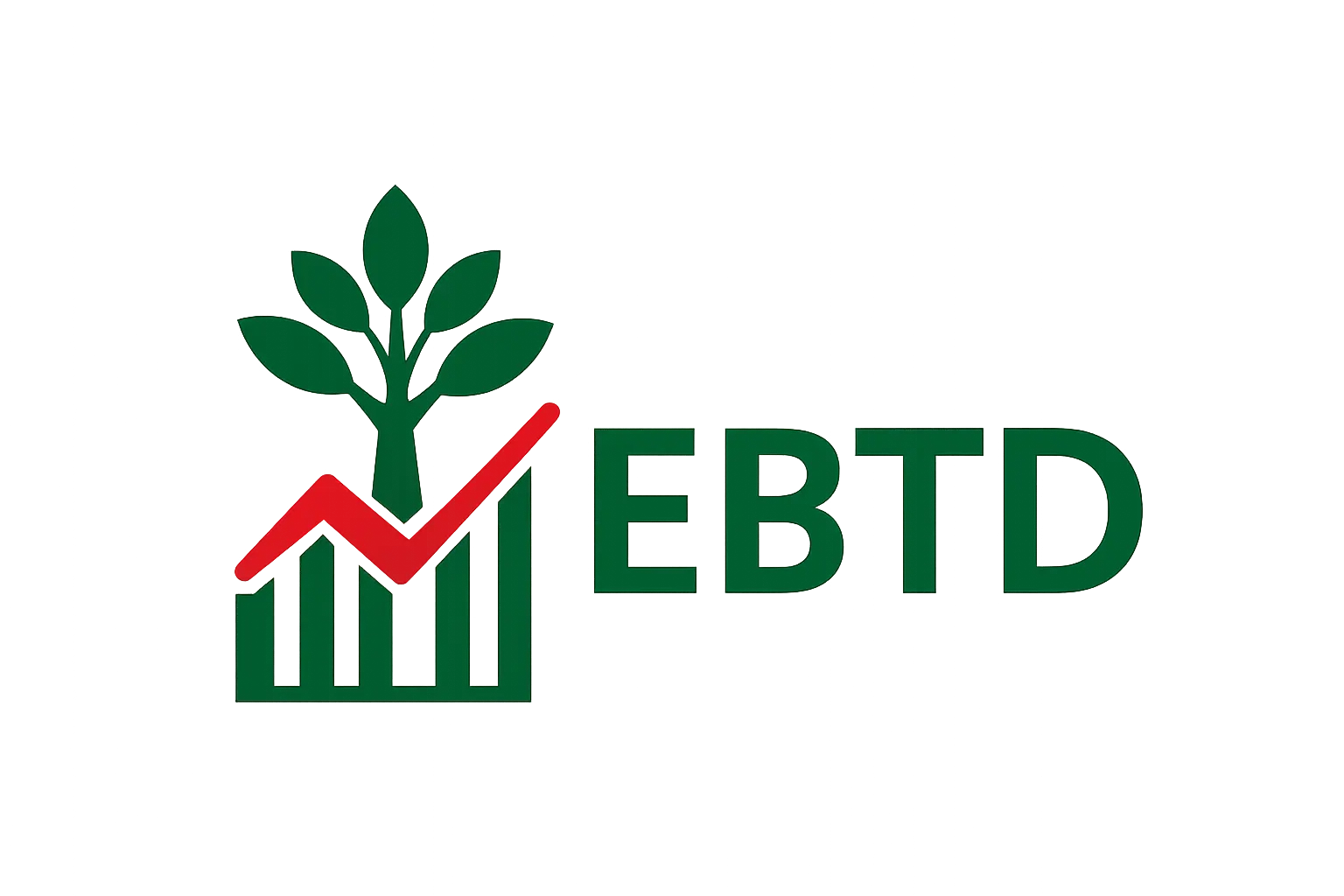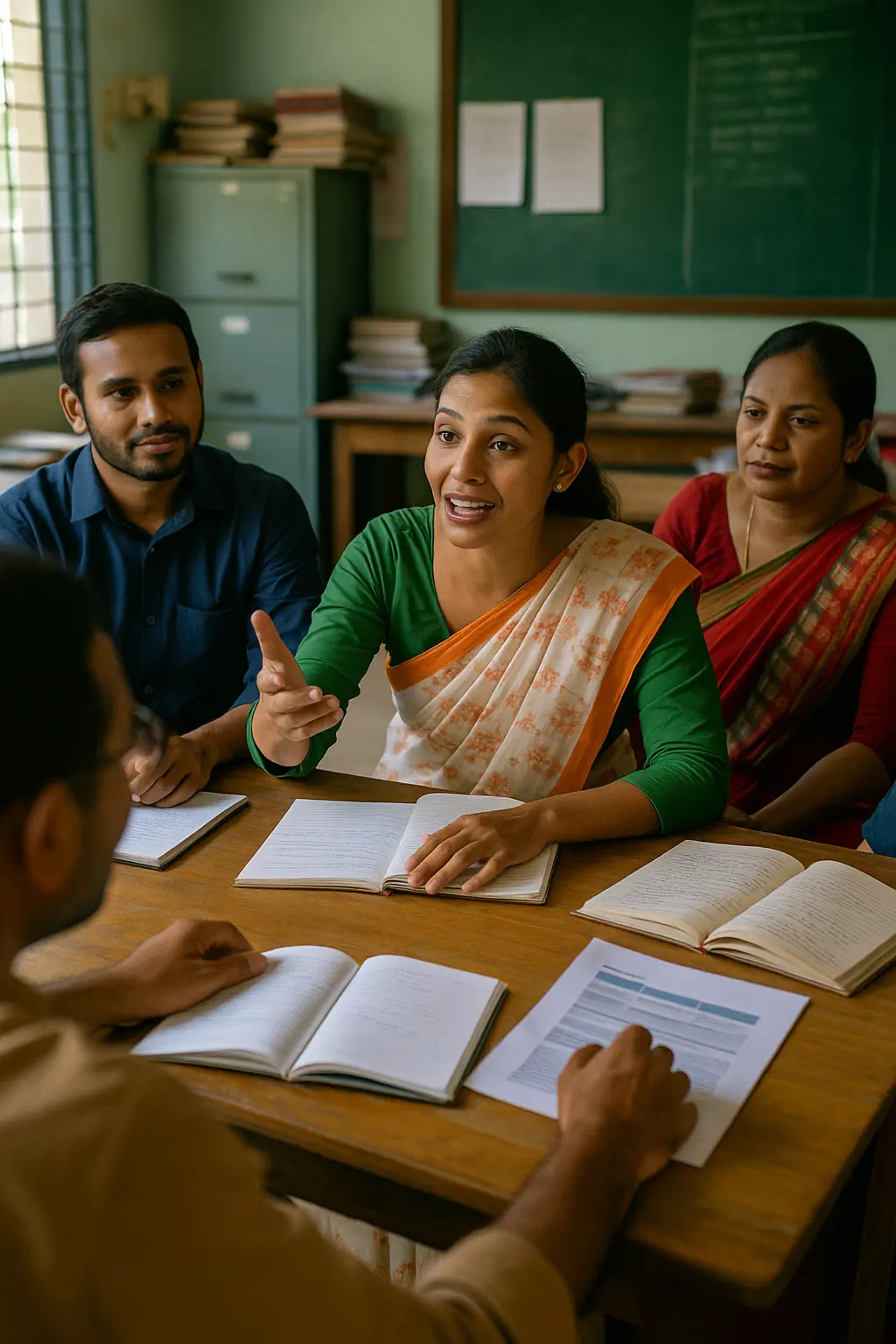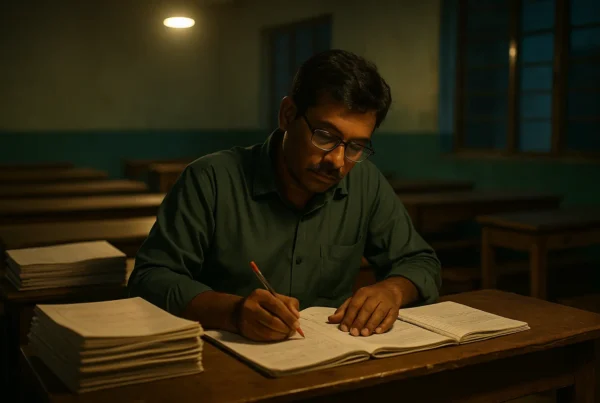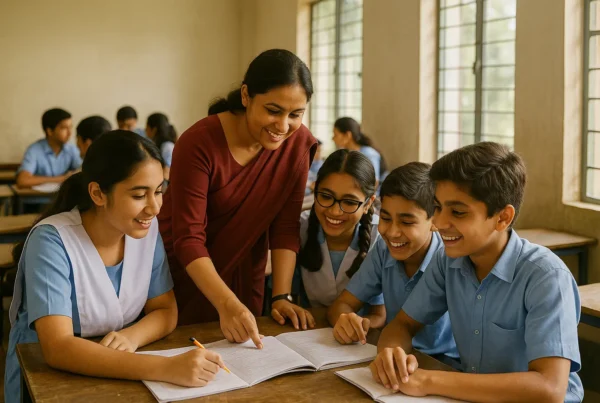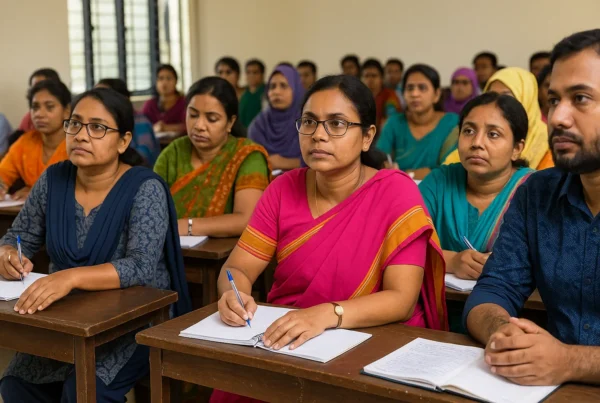Professional Development for Teachers in Bangladesh: From Attendance to Impact
Across Bangladesh, recent evaluations show that most teachers now participate in structured professional learning each year. Access has widened through face-to-face, blended, and online routes, marking significant national progress in building teacher capability.
However, the evidence also highlights a persistent challenge. Classroom observation studies and national learning assessments conducted between 2023 and 2025 reveal that many lessons still depend primarily on repetition and recall. Opportunities for students to explain, reason, and question remain limited. Despite sustained investment in teacher training, improvements in learning outcomes have been slower than expected.
Surveys of teacher confidence and practice suggest that many educators value training but struggle to transfer new strategies into daily classroom routines. The challenge is less about access and more about effectiveness — how professional development is designed, delivered, and embedded.
The Evidence Landscape
Multiple studies converge on a single insight: scale alone does not guarantee impact.
Independent evaluations of teacher development initiatives across both primary and secondary sectors identify four recurring issues:
- Over-reliance on theoretical input with limited classroom rehearsal;
- Insufficient mentoring and follow-up once teachers return to schools;
- Uneven quality of facilitation, with trainers themselves requiring stronger pedagogical preparation; and
- Fragmentation, where professional development activities operate in isolation rather than as part of a coherent system.
At the same time, there are strong indications of progress. Monitoring data show an expanding network of peer-learning communities and a steady rise in teachers engaging with reflective practice. The system is evolving — but evidence suggests it must evolve further if training is to consistently change classroom behaviour.
What Global Evidence Adds
The Education Endowment Foundation (EEF) synthesised more than 100 rigorous international studies to understand why some professional development initiatives transform practice while others fade quickly.
Their findings identify four essential mechanisms that drive effective professional growth:
| EEF Mechanism | What the Research Shows | Implications for Bangladesh |
|---|---|---|
| 1. Build Knowledge | Present focused content, manage cognitive load, and revisit core ideas over time. | Sessions that concentrate on one specific strategy—such as questioning or feedback—enable deeper understanding than broad overviews. |
| 2. Motivate Teachers | Strengthen professional identity and commitment through credible evidence, clear goals, and recognition. | Teachers engage more when development links directly to improved student learning in their own subjects and when effort is acknowledged by school leaders. |
| 3. Develop Teaching Techniques | Model effective practice, provide opportunities to rehearse, and give feedback. | Evidence from South-Asian contexts shows that practice-based training combined with observation and coaching produces stronger change than lectures alone. |
| 4. Embed Practice | Support habit formation through planning tools, prompts, and follow-up reflection. | Without structured follow-up, training effects decline rapidly. Sustained mentoring and peer discussion are critical. |
The Leadership Dimension
School leaders play a decisive role in translating professional development into classroom improvement.
Research across low- and middle-income countries, including Bangladesh, finds that teachers are most likely to sustain new practices when leaders create time, trust, and accountability for collaborative learning.
Leaders influence success through four levers:
- Alignment: linking professional learning to clear school-level priorities rather than isolated initiatives.
- Time: scheduling short, regular opportunities for reflection and peer coaching within the school week.
- Feedback: observing lessons constructively and offering developmental guidance.
- Culture: recognising experimentation and improvement, not only compliance.
Evidence from leadership studies shows that schools fostering such professional environments record faster improvement in teaching quality and student progress than those relying on external workshops alone.
Building Professional Learning Cultures
Ask: “What changed in classroom practice?” not “How many were trained?”
Connect activities into a coherent progression across the school year.
International reviews, including those by UNESCO and the OECD, emphasise that sustainable improvement depends on cultures of continuous learning rather than cycles of discrete training events.
In practical terms, this means shifting attention from “How many teachers were trained?” to “What changed in classroom practice?”
Key evidence-informed approaches include:
- Lesson study and peer observation – enabling teachers to jointly plan, teach, and reflect.
- Instructional coaching – providing targeted feedback linked to classroom evidence.
- Professional inquiry cycles – encouraging teachers to test and evaluate strategies within their own context.
- Digital communities of practice – extending peer dialogue while ensuring equitable access and follow-up.
Where these approaches are implemented consistently, studies report measurable improvements in both teaching confidence and learner engagement.
Moving from Policy to Practice
Bangladesh’s education strategy increasingly recognises that teacher quality is the most powerful in-school factor influencing student achievement. The task now is to translate that recognition into day-to-day professional learning systems that operate at every school level.
Research-based recommendations emerging across recent evaluations include:
- Integrate mentoring into all professional development. Pair experienced practitioners with early-career teachers for structured observation and reflection.
- Focus training on subject-specific pedagogy. Evidence shows that improvements in student learning are strongest when professional development connects content knowledge to teaching methods.
- Ensure follow-up cycles. Every major training initiative should include planned in-school activities, feedback sessions, and monitoring of practice change.
- Invest in school-based facilitators. Sustainable professional growth depends on local expertise, not just national programmes.
- Monitor impact through evidence, not attendance. Use observation rubrics and samples of pupil work to assess whether teaching practices are shifting.
A Shared Responsibility
Effective professional development is not solely the responsibility of teachers. It requires coordinated leadership, supportive policy, and a commitment to evaluation.
The most recent national and international evidence converges on one central principle: professional learning must be active, sustained, and focused on practice if it is to improve outcomes for students.
Bangladesh has made substantial progress in widening access to training. The next stage is to ensure that every hour invested leads to tangible improvement in the quality of teaching and learning.
EBTD’s Commitment
At Evidence-Based Teacher Development (EBTD), we are dedicated to translating global research into local action. Through collaboration with educators and leaders across Bangladesh, we aim to strengthen systems of professional learning that are practical, evidence-driven, and focused on student success.
If you would like to receive monthly summaries of new research and free leadership tools, join our newsletter community.
👉 Sign up here
References
- Education Endowment Foundation (2021). Effective Professional Development Guidance Report.
- Campaign for Popular Education (CAMPE) (2024). Education Watch 2024: The Role of Teachers in Transforming Education.
- National Academy for Primary Education (NAPE) and European Union (2024). Assessment Report on the Revised Diploma in Primary Education.
- UNESCO-UNICEF (2025). Public Digital Learning Platforms: Bangladesh Case Study.
- World Bank (2023). Learning Recovery and Acceleration in Bangladesh.
- OECD (2022). Global Teaching Insights.
- Kraft & Papay (2014). Can Professional Environments in Schools Promote Teacher Development?
